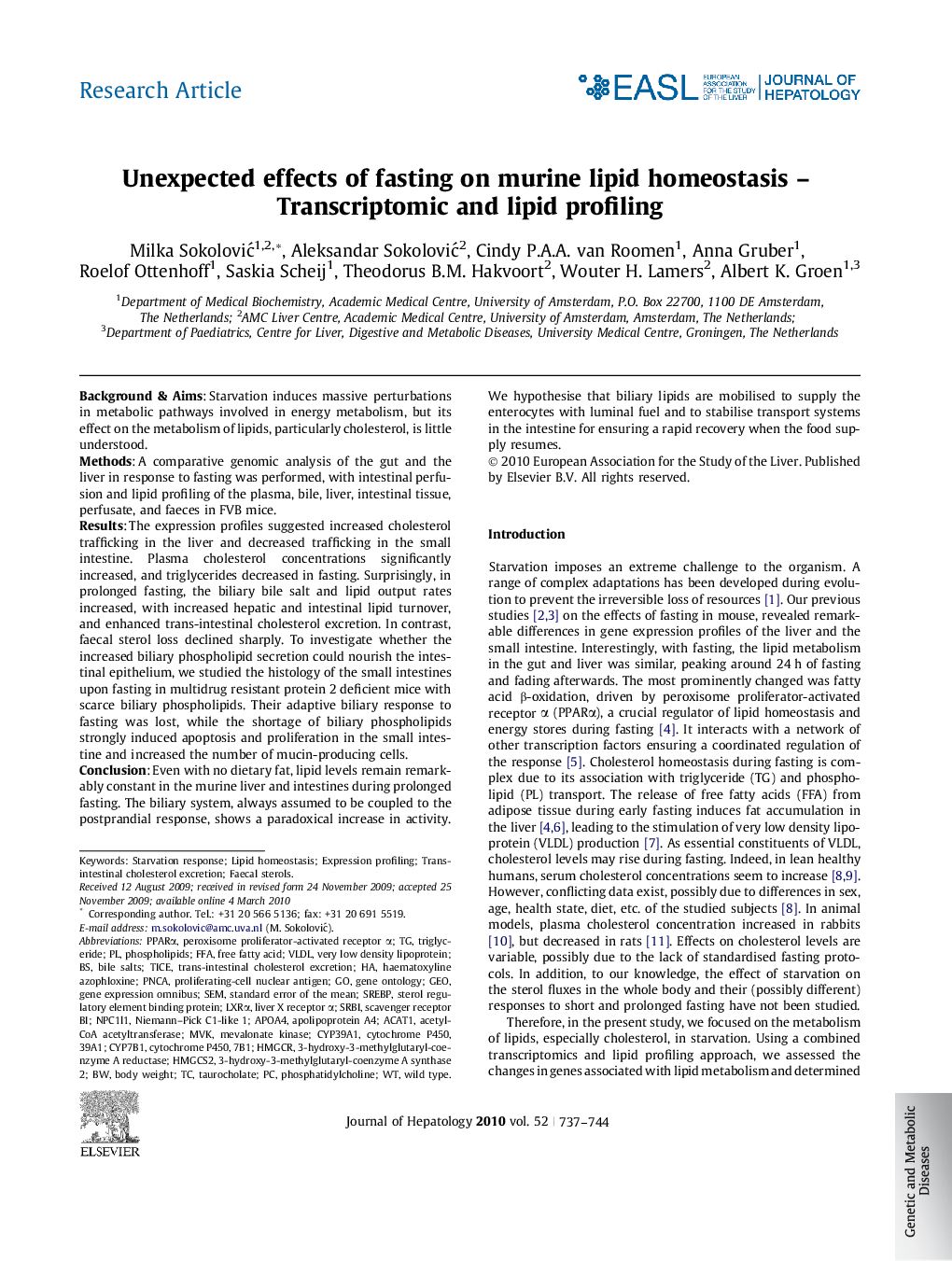| کد مقاله | کد نشریه | سال انتشار | مقاله انگلیسی | نسخه تمام متن |
|---|---|---|---|---|
| 6109485 | 1211204 | 2010 | 8 صفحه PDF | دانلود رایگان |

Background & AimsStarvation induces massive perturbations in metabolic pathways involved in energy metabolism, but its effect on the metabolism of lipids, particularly cholesterol, is little understood.MethodsA comparative genomic analysis of the gut and the liver in response to fasting was performed, with intestinal perfusion and lipid profiling of the plasma, bile, liver, intestinal tissue, perfusate, and faeces in FVB mice.ResultsThe expression profiles suggested increased cholesterol trafficking in the liver and decreased trafficking in the small intestine. Plasma cholesterol concentrations significantly increased, and triglycerides decreased in fasting. Surprisingly, in prolonged fasting, the biliary bile salt and lipid output rates increased, with increased hepatic and intestinal lipid turnover, and enhanced trans-intestinal cholesterol excretion. In contrast, faecal sterol loss declined sharply. To investigate whether the increased biliary phospholipid secretion could nourish the intestinal epithelium, we studied the histology of the small intestines upon fasting in multidrug resistant protein 2 deficient mice with scarce biliary phospholipids. Their adaptive biliary response to fasting was lost, while the shortage of biliary phospholipids strongly induced apoptosis and proliferation in the small intestine and increased the number of mucin-producing cells.ConclusionEven with no dietary fat, lipid levels remain remarkably constant in the murine liver and intestines during prolonged fasting. The biliary system, always assumed to be coupled to the postprandial response, shows a paradoxical increase in activity. We hypothesise that biliary lipids are mobilised to supply the enterocytes with luminal fuel and to stabilise transport systems in the intestine for ensuring a rapid recovery when the food supply resumes.
Journal: Journal of Hepatology - Volume 52, Issue 5, May 2010, Pages 737-744